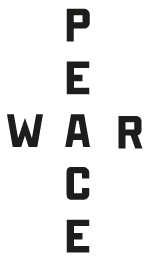“War or Peace” at a Glance
Our Purpose
1918 is essentially linked to the end of the First World War, the “Great War” that had upended Europe and the world. While some were mourning losses and defeat, 1918 marked the rise of new nations and identities for others. Hopes and visions for a brighter and peaceful future collided with continuing violence in various shapes and forms. Entirely different notions of coexistence, peace and democracy were deliberated both peacefully and with violent or suppressive means. Ambiguities like these are symptomatic not only for the time after the First World War, but for many crossroads of global history.
This in mind, the festival “War or Peace?” aimed to capture the variety of different – sometimes competing – narratives and to explore their consequences for today’s reality.
Via different topics and approaches, the participants of the festival campus investigated how notions, expectations and reality of War and Peace differed throughout space and time and how memory and mutual understanding have strong effects on current political and civic activity. By pooling different identities, diverse perspectives as well as ideas of remembrance and utopia, the participants aimed to voice common perspectives on the past, the present and the future in unexpected and creative ways. Innovative and unexpected methods and perspectives were part of the festival’s unique approach. The Maxim Gorki Theatre Berlin contributed to the multi-perspective approach of the festival by setting up a corresponding cultural programme. International artists shared their perspectives apart from normative narratives. Guests were cordially invited to take part in public events of the festival in Berlin, such as theatre plays, performances, discussion boards and the presentation of the workshop results.
Who We Are
War or Peace was organised by the Federal Agency for Civic Education (bpb) and the Maxim Gorki Theatre Berlin in cooperation with the German Federal Cultural Foundation, supported by the Federal Foreign Office.
More on Organisers & Partners of the festival here.
Took place from ...
… 17th to 21st October in Berlin. The Opening Ceremony on Wednesday evening was followed by three campus days exploring topics of war and peace throughout history in workshops. Exciting side activities activated the participants to dig deeper into related fields of interest and gave them time to exchange with other international participants. In the evenings, the Maxim Gorki Theatre invited all participants to wrap their mind around artistic approaches to the topic. Our discursive journey concluded with a celebratory presentation of results on Saturday. An optional Sunday matinee provided the concluding epilogue with a Gorki Forum discussion (on 21st October).
The Maxim Gorki Theatre contributed with a corresponding cultural programme which was open to the public. Various performances, lectures, and artistry were showed from 16th to 31st October 2018.
Find a complete list of every event in the festival programme.
The entire event was based in the heart of Berlin. Activities took place at the Maxim Gorki Theatre, the Palais am Festungsgraben and Quadriga Berlin.
More on our venues here.
The Campus…
… was an essential part of the festival. In 20 workshops, participants applied themselves to a subtheme in order to shed light on contrasts and narratives of the events in and after 1918 and their meaning for today. With innovative and unusual methods, we created an intensive working atmosphere.
The campus programme was realised in collaboration with the various international partners of the festival. They brought their own expertise and distinct background into the respective workshops and therefore add to the multiperspective approach of the festival.
Find a complete list of all workshops here.
Our Participants...
… shaped our festival. We welcomed more than 300 young professionals from Europe and beyond who were interested in investigating different notions, expectations and realities of war and peace. We called for people with diverse perspectives and identities who voice their own ideas of remembrance and utopia.
The application was open for everyone aged 18-30 years with a strong interest or professional background in history education, remembrance work, public or urban history, peace and conflict studies or related subjects.
Please note that registration is now closed.
Stay Up to Date!
Follow our Blog. Look at our programme. Contact us with questions. We are happy to provide you with information about the festival.
